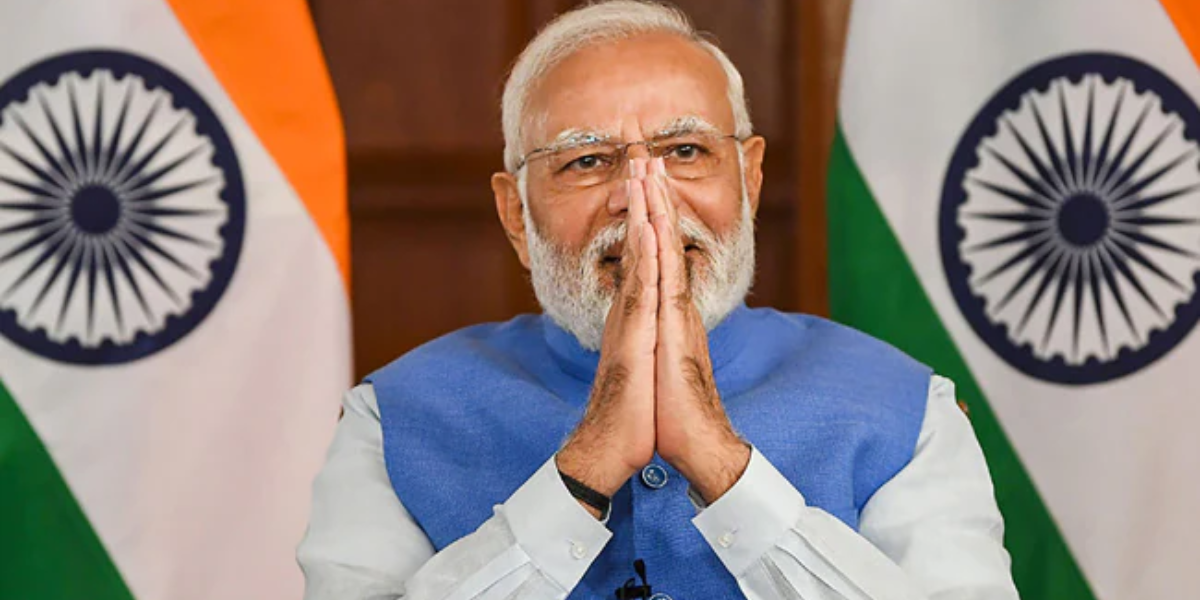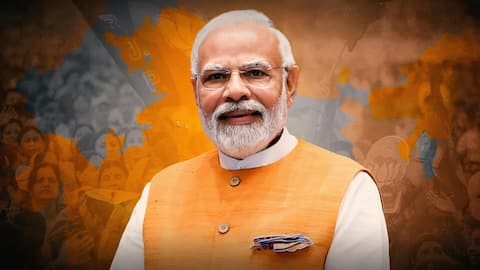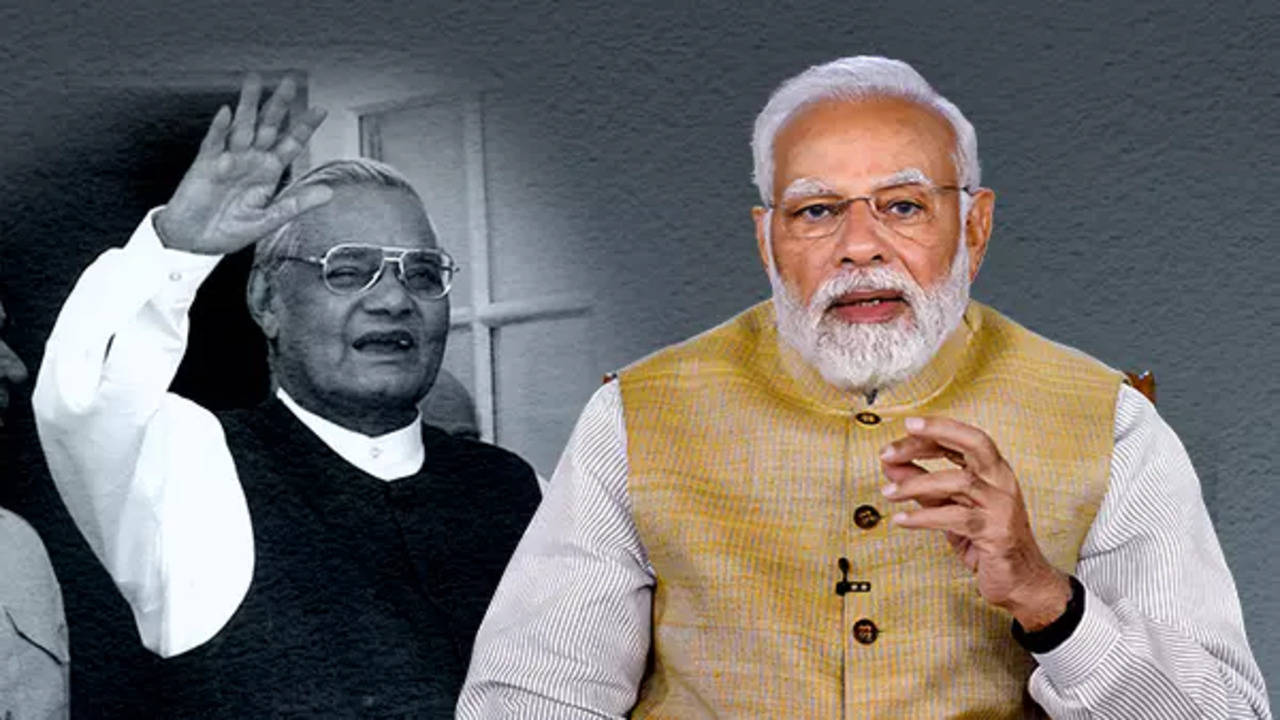Growing tensions between Muslims and Hindus have sparked worries about what a third term for Narendra Modi will mean for the nation.
In recent weeks, Narendra Modi, the prime leader of India, has projected confidence. Declaring that “this hat-trick has guaranteed the 2024 victory,” Modi did not hold back after his Bharatiya Janata party (BJP) won three significant state elections in December.
It was an indication that the campaign season has kicked off with a bang, with less than six months till the general election, in which Modi is standing for a third term as prime minister.
Political observers in India generally agree that a victory for Modi and the BJP is the most likely scenario given the country’s present political climate.
The BJP’s Hindu nationalist ideology and the prime minister’s popularity as a political strongman continue to appeal to the vast majority of Hindus in the nation, especially in the densely populated Hindi belt of the north, which leads to the widespread persecution of Muslims.
Since Modi’s election in 2014, the country’s machinery has been substantially biased in favor of the BJP at both the state and federal levels. He is charged with supervising an unparalleled concentration of authority, suppressing dissenting voices in the media, weakening the autonomy of the legal system and all types of legislative examination and responsibility, and employing government organizations to apprehend and prosecute political.
Although there are substantial local opposition groups opposing the BJP in several parts of south and east India, the movement is generally regarded as weak and dispersed. This month, the main opposition Indian National Congress party emerged victorious in the Telangana state election. Despite controlling only three states altogether, the party is viewed as being deeply divided and hierarchical.
The alliance known as INDIA, which was formed lately and consists of all the main opposition parties, has promised to take on the BJP as a group but has not yet agreed on any significant topics.
At this point, most people believe that a BJP victory is all but certain, according to Neelanjan Sircar, a fellow at the Centre for Policy Research. More to the point,
The BJP has started its national pre-election campaign. Over the course of the next two months, thousands of government employees will travel around the nation as part of the Viksit Bharat Sankalp Yatra, a roadshow that aims to raise awareness of the achievements of the Bharatiya Janata Party (BJP) despite accusations that the party is using resources and government bureaucracy for political gain.
In addition, the Ministry of Defence is erecting 822 “selfie points”—places where visitors may snap pictures of themselves with a Modi cutout—at war memorials, defense museums, train stations, and tourism destinations.
Modi’s popularity seemed to be confirmed by the BJP’s recent dominance in the states of Rajasthan, Madhya Pradesh, and Chattisgarh. Even though state elections are primarily used to choose local assembly members, the prime minister is not very involved in them. However, the BJP purposefully placed Modi in the forefront of their campaigns instead of local leaders, having him speak at numerous rallies to win over supporters and project an image of the party.
In these campaign speeches, Modi blended nationalistic and religiously communal rhetoric with an emphasis on the BJP’s paternalistic welfare schemes, which give out generous amounts of free food and cash handouts. This gave an indication of how the BJP plans to fight the election on a national level.
Modi had a significant role in making India a more powerful force in the world, both in terms of international affairs and the country’s recent moon landing in August (it became the first to land a spacecraft close to the lunar south pole).
Political analyst Asim Ali claimed that the recent northern state election campaigns were “some of the most religiously polarising I have seen,” with the BJP aggressively capitalizing on Hindutva (Hindu nationalist) feelings to secure the majority support.
Modi used the murder of a Hindu tailor in Rajasthan by radical Muslims several times to prove that the ruling Congress party was “sympathetic to terrorists” and that the murder was the result of their appeasement of Muslims.
There were four Hindu priests running for the BJP, some with quite extreme views, but there were no Muslims. In Chhattisgarh, a state where tribal people predominate, the BJP capitalized on concerns about forcibly converting tribal people from Hinduism.
A wave of anti-incumbency sentiment propelled Modi to power in 2014, and his victory in the 2019 re-election was virtually assured when India launched airstrikes on Pakistan in response to a terrorist incident that occurred just months before the polls. This action fueled strong national security sentiment in his favor.
It remains uncertain, though, if the BJP can obtain the same kind of broad parliamentary majority as it did in 2019. Its stance in certain key states, like Bihar and Maharashtra, is unclear, and voters may be influenced by the party’s inaction on issues related to the economy, specifically inflation and jobs.
Ali was one of the people who thought that further inflaming the Hindu-Muslim split would make it “the dominant issue, at least in the Hindi heartland.”
Not only has Hindu-Muslim communalization been fully normalized, but so have television news channels, social media, and WhatsApp communications, in addition to political campaigning, according to Ali. “The BJP can at any time activate it at the grassroots level. People may understand the message with just a few coded communal dogwhistles and a few chants from Modi and other senior BJP leaders.
In fact, the much-awaited completion of the Ram Mandir—a magnificent Hindu temple constructed in the site of a demolished mosque—is probably going to be the main item on the BJP’s pre-election agenda. The Hindu nationalist movement in India has long centered around the building’s construction in the town of Ayodhya in the north, and the excitement around Modi’s opening of the temple later this month in January is anticipated to be a national occasion.
The BJP’s national vice president, Baijayant Panda, expressed the party’s extreme confidence in the results of the parliamentary elections. He attributed some of the optimism to “the Modi premium,” which refers to the prime minister’s “stratospheric popularity,” which means the BJP often does better in national elections than state ones.
Even in regions where we haven’t historically prevailed, there is a tremendous upsurge in hope on the ground, according to Panda. “This kind of victory in the state elections solidifies our leadership,”
Some commentators and human rights groups expressed alarm over what exactly a third term for Modi would imply for India, especially if it was another outright majority. While Panda predicted that it would be characterized by economic prosperity and India rising to become the third-largest economy in the world, others expressed concern that democracy and the rights of the more than 200 million Muslims would continue to be undermined.
The head of Brown University’s Center for Contemporary South Asia, Ashutosh Varshney, stated that he anticipated more attacks on Muslim rights.
He cautioned that under a third Modi term, conditions like to the Jim Crow laws, which disenfranchised black people in southern American states in the late 19th and early 20th centuries on the grounds of race, could materialize in India.
“We can envision a scenario of a Jim Crow-style Hindu nationalist order in BJP-ruled states if Modi returns to power,” Varshney added. “It will establish Hindu supremacy, deny Muslims equality, and give Muslims a second citizenship, which will probably result in the eventual removal of their voting rights.”
Panda refuted claims that the BJP practises communalism. “I challenge anyone to identify a single instance where a minority, be it Muslim, Christian, Buddhist, or Sikh, has faced discrimination in India’s governance,” he declared.




